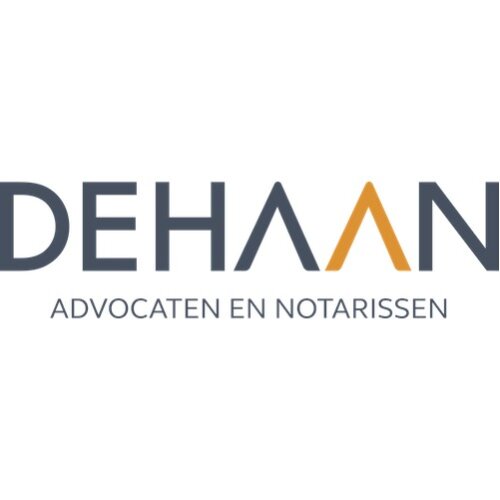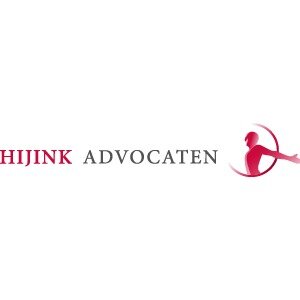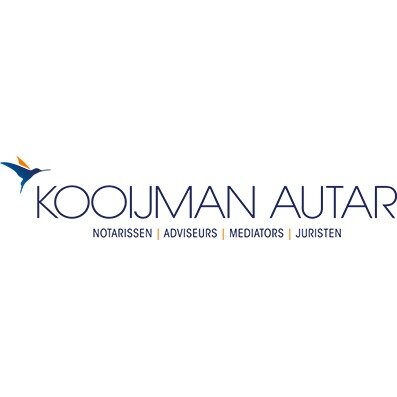Best Structured Finance Lawyers in Netherlands
Share your needs with us, get contacted by law firms.
Free. Takes 2 min.
Or refine your search by selecting a city:
List of the best lawyers in Netherlands
About Structured Finance Law in Netherlands
Structured finance refers to complex financial transactions that are typically used to manage risk and improve the availability and efficiency of capital. In the Netherlands, structured finance encompasses activities such as securitization, collateralized loan obligations, repackaging of debt, and other customized investment solutions. Dutch law, combined with the country's strong position as a financial center in Europe, makes it a popular jurisdiction for these sophisticated arrangements. The regulatory environment is well developed, which supports investor confidence and market transparency.
Why You May Need a Lawyer
Structured finance transactions can be highly complex, involving multiple stakeholders, various asset classes, and cross-border elements. Individuals and organizations often require legal assistance in the following scenarios:
- Structuring and setting up securitization vehicles and special purpose entities
- Negotiating and drafting transaction documentation
- Navigating Dutch and EU regulatory requirements
- Ensuring compliance with tax and accounting standards
- Understanding the liabilities and risks involved in structured products
- Resolving disputes or litigation arising from structured finance deals
- Advising on the legal aspects of innovative products such as asset-backed securities or covered bonds
- Guidance for international investors looking to set up Dutch structured finance operations
Given the intricate nature of these transactions and the need for compliance with local and European regulations, having a legal specialist is crucial to avoid costly mistakes and ensure efficient execution.
Local Laws Overview
The Netherlands provides a robust legal and regulatory framework for structured finance, enriched by its alignment with European Union directives. Key aspects of the local laws include:
- Financial Supervision Act (Wet op het financieel toezicht or Wft): This act governs financial markets and products, including authorization and secondary market regulations for securitization and structured finance transactions.
- Securitization Regulation (EU): As an EU member, the Netherlands follows stringent transparency, due diligence, and risk retention requirements as prescribed by the EU Securitization Regulation.
- Tax Laws: The Netherlands offers a favorable tax regime for structured finance vehicles, but structuring must comply with anti-abuse provisions and substance requirements.
- Insolvency Law: Dutch law provides clarity on the bankruptcy remoteness of securitization vehicles, offering protection to investors in the event of insolvency.
- Data Protection and AML Regulations: Transactions must also comply with privacy and anti-money laundering regulations, requiring careful due diligence and documentation.
Understanding these local legal nuances is essential for anyone engaging in structured finance in the Netherlands.
Frequently Asked Questions
What is structured finance?
Structured finance involves the design and management of complex financial products and transactions that aim to manage risk, optimize funding, or address specific financial goals using securitization, derivatives, and other instruments.
Is the Netherlands a favorable jurisdiction for structured finance?
Yes, the Netherlands is recognized for its stable legal environment, favorable tax treatment, and robust financial infrastructure, making it a preferred location for structured finance activities.
What legal structures are commonly used in Dutch structured finance?
Common structures include special purpose vehicles (SPVs), commercial paper conduits, and asset-backed securities. These provide legal certainty and bankruptcy remoteness.
Do structured finance transactions require regulatory approval?
Depending on the transaction type and involved parties, regulatory approval or notification under the Dutch Financial Supervision Act may be necessary.
Are there specific tax considerations for structured finance in the Netherlands?
Yes, while the Dutch tax regime generally favors finance vehicles, strict rules apply regarding substance, anti-abuse, and reporting requirements. Professional advice is essential.
How does EU law affect Dutch structured finance?
EU legislation, particularly the Securitization Regulation, directly applies in the Netherlands, setting high standards for transparency and investor protection.
Can foreign investors participate in Dutch structured finance deals?
Absolutely. The Netherlands welcomes foreign investors and provides legal structures to facilitate cross-border transactions, although compliance with EU and Dutch laws is required.
What risks should I be aware of in these transactions?
Risks include regulatory changes, market volatility, counterparty default, legal enforceability, and reputational risks. Legal advice can help anticipate and mitigate such risks.
How are disputes typically handled?
Disputes may be resolved through the Dutch courts or arbitration, depending on contract terms. Legal experts can guide the best course based on the transaction and involved parties.
How do I choose the right lawyer for my needs?
Look for legal professionals with expertise in Dutch and EU structured finance law, proven track record in similar transactions, and the ability to advise on cross-border matters if needed.
Additional Resources
For those seeking more information or specific guidance on structured finance in the Netherlands, the following resources may be helpful:
- Netherlands Authority for the Financial Markets (AFM) - Supervises financial markets and provides regulatory updates
- De Nederlandsche Bank (DNB) - Central bank involved in the oversight of banks and financial stability
- Dutch Ministry of Finance - Provides information on financial legislation and regulatory changes
- Netherlands Bar Association - Directory to find legal professionals with expertise in finance law
- European Securities and Markets Authority (ESMA) - Offers detailed guidance on EU Securitization Regulation
- Industry associations such as Holland Financial Centre
Next Steps
If you need legal assistance with a structured finance transaction in the Netherlands, start by clearly defining your goals and gathering relevant documentation. Research and contact legal professionals with proven expertise in Dutch structured finance law and request an initial consultation to discuss your needs. Be prepared with questions regarding their experience, approach to risk management, and familiarity with local and international regulations. Reviewing credentials and seeking recommendations from industry associations can also be helpful. With the right legal support, you can navigate the complexities of structured finance in the Netherlands efficiently and confidently.
Lawzana helps you find the best lawyers and law firms in Netherlands through a curated and pre-screened list of qualified legal professionals. Our platform offers rankings and detailed profiles of attorneys and law firms, allowing you to compare based on practice areas, including Structured Finance, experience, and client feedback.
Each profile includes a description of the firm's areas of practice, client reviews, team members and partners, year of establishment, spoken languages, office locations, contact information, social media presence, and any published articles or resources. Most firms on our platform speak English and are experienced in both local and international legal matters.
Get a quote from top-rated law firms in Netherlands — quickly, securely, and without unnecessary hassle.
Disclaimer:
The information provided on this page is for general informational purposes only and does not constitute legal advice. While we strive to ensure the accuracy and relevance of the content, legal information may change over time, and interpretations of the law can vary. You should always consult with a qualified legal professional for advice specific to your situation.
We disclaim all liability for actions taken or not taken based on the content of this page. If you believe any information is incorrect or outdated, please contact us, and we will review and update it where appropriate.
Browse structured finance law firms by city in Netherlands
Refine your search by selecting a city.

















